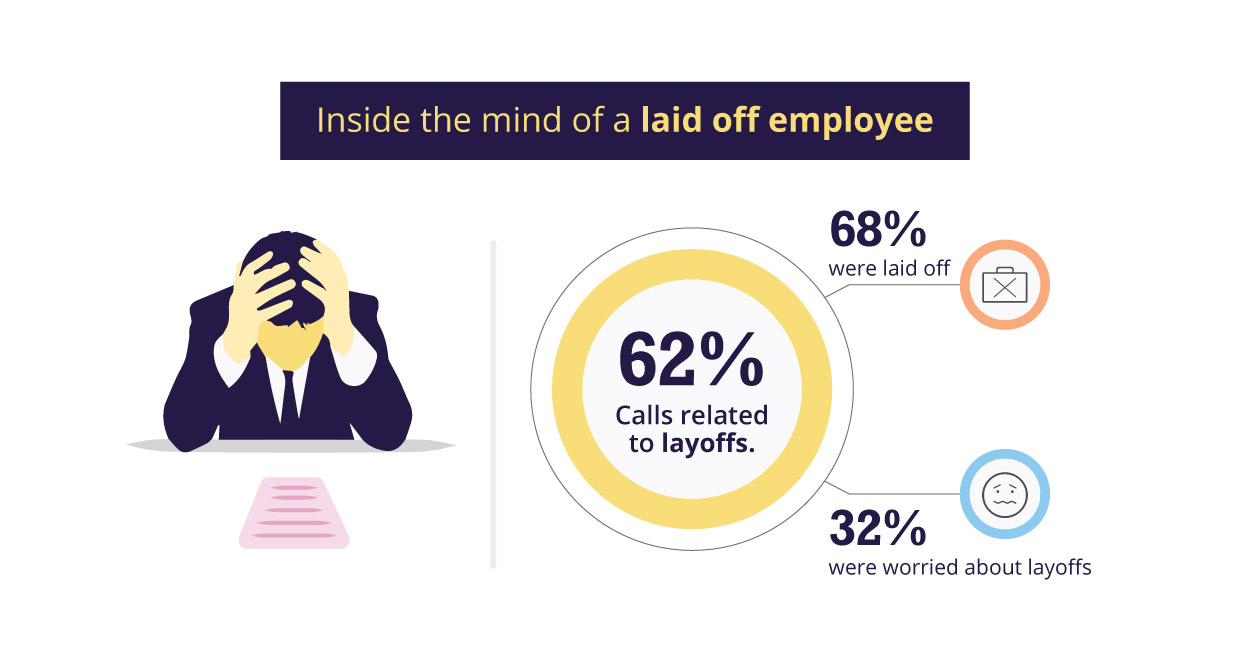Having spent more than two decades in the world of HR and recruitment, I’ve seen many rounds of layoffs, and met many professionals who have been laid-off or fired. Interacting with employers and employees has given me a unique perspective on how a candidate who has been laid-off should think, manage their time, and make the right decision. I’ve distilled them into the following 8 tips on how to stay relevant when laid-off.
1. Be honest
Don’t hide the fact that you were laid off. These days background and reference checks are common. If you’ve hidden this fact, it is equivalent to a lie. Why lie about something not under your control? Be honest, you’re just a victim of your circumstance. There’s no need to overexplain or elaborate, to prove that you were a good employee and have been hard done by. In the past I’ve seen offers rescinded after being signed, and even employees asked to leave months after being hired, that is a black mark that’s never going to go away.
2. Start looking immediately
If you have the financial support, and if you’ve been doing something that you didn’t like, then take a break. In all other circumstances, it is advisable to start job hunting as soon as you’re aware of your impending layoff. If you decide to take a break and then hit a wall during your job-hunt, after the break, you’ll find that your confidence eroding. This might lead to rash decisions. When there were layoffs in Hewlett-Packard, the market was quickly flooded with HP resumes, and the value of HP stamp fell. The ones who didn’t waste time benefitted.
3. Figure out your market value
This is for all employees: whether you have a stable job or you think that you might be laid off. It’s important to test the market and figure out what your real market value. Not doing this makes you ill-prepared when you get laid off. This happened to somebody who had a stable job for 14-15 years and then found himself without a job. He was quite surprised when he found it difficult to find a job. He may have been a big fish in his company, but outside he was like a fish out of water. The big guys get hit the worst. It is therefore important to attend interviews, stay current and constantly know what’s their market value.
4. Resign, get laid off or wait to be fired?
Choosing to resign,waiting to get laid off or fired is situational. If somebody has huge financial commitments, they will continue working even though they know staying is hurting their career. If they have savings, they may be ready to resign and hope to find a job in the notice period.Being laid off is better than getting fired or resigning voluntarily because one is entitled to a severance package. But it also means that you’d be looking for a job when the market is flooded with resumes. Resigning requires confidence and self-assurance that one can find a job before the notice period expires, or that one can explain the gap in employment if the notice period lapses.
5. Don’t make decisions locked in at home
Do your homework before making any decisions on where to apply, role, designation, compensation and company. This can only be done by going out and talking to friends, peers, mentors, recruiters and others from the same industry. One mustn’t make decisions that are not thought through completely. A common mistake is to use this time to do certifications. This maybe be a waste of time, and even counterproductive. These only make sense if the company likes your profile but sees that you have a specific certification missing in your resume.
6. Lower pay, lower designation
Other than higher pay and higher designation, all other choices are tricky. If it’s lower pay, lower designation, you can hold out for a better offer, or accept it if it’s a better organization than your last one, or if you need a job desperately. But it’s important to let the organization know that you’ll want a better deal once you’ve proved your worth in a couple of quarters. Additionally, if you quit for a better offer, the management can’t hold it against you. With lower pay, higher designation, it all boils down to whether you value a higher designation over higher pay. I’ve seen instances of somebody accepting a CEO position at a startup with lesser pay just because of the C-level tag. In the case of lower pay, higher designation, if the designation matters less than the pay, one can still negotiate a promotion in the next appraisal cycle.
7. Don’t say yes to the first job offer
Apply the logic of a car purchase to choosing a job. Do you buy the first car that you see? No. You test drive the car, read car reviews, do online research, ask your friends, check with others who own the car, evaluate deals, check mileage and then decide. If you have a job offer, check the appraisal cycle, whether you are eligible for a raise, amount of travelling, work culture, leave policy, severance packages and so on. Seek some time before accepting the offer, to check if there are other opportunities floating in the market.
8. Be wary of mouthing off on social media
It’s normal to be angry and feel resentful towards the organization that let you go. If you’re spewing venom on social media about your organization, colleagues or manager, it doesn’t speak well about your professionalism. If you have to vent, use Glassdoor, anonymously.
What you say on social media can come back and haunt you. As a recruiter, I’m asked more and more to do a social media profile check on employees to see if they have said anything that hurt the reputation of a company, was racist, politically inflammatory, or stoked religious sentiments. Even if you have said something years ago, it can hurt you, and even get you fired.
This article is a part of #Fired2FiredUp Campaign by YourDOST. Visit the page for real life stories, learnings and tips from career psychologists and recruiters.
Have you experienced a layoff recently? Are you finding it difficult to cope with it? Talk to an Expert at YourDOST.





